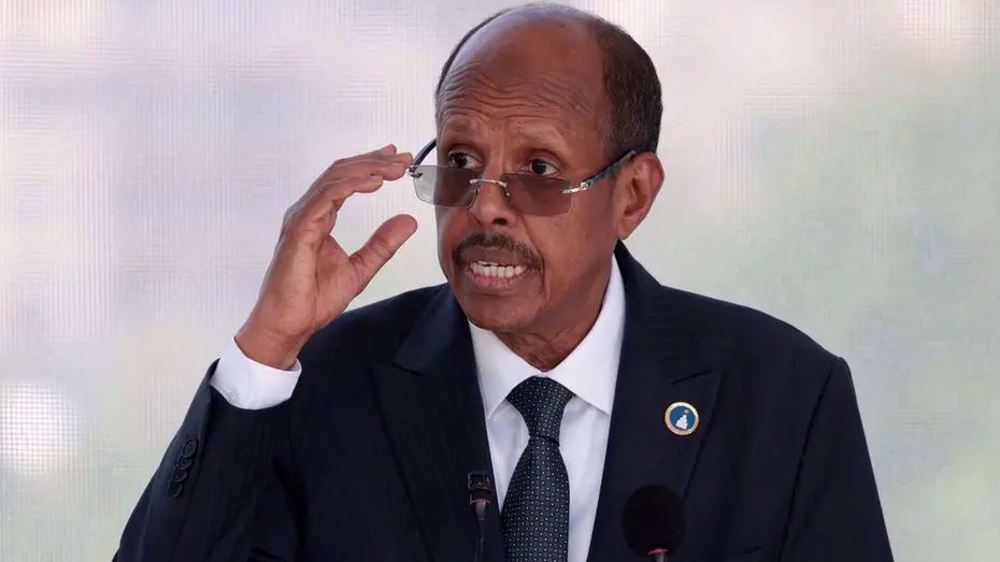In a first, ICC to award Congo war crimes victims $250 each
The International Criminal Court Friday ordered 297 victims of ex-Congolese warlord Germain Katanga to each receive "a symbolic" $250 in damages for a brutal 2003 attack on their village, in the tribunal's first such award.
Awarding both individual and collective damages, the court also found that Katanga was liable for $1-million of the total material, psychological and physical damage caused, estimated by the court to stand at $3.7-million.
Katanga was sentenced by the ICC to 12 years in jail in 2014, after being convicted on five charges of war crimes and crimes against humanity for the February 2003 ethnic attack on Bogoro village in troubled Ituri province of the Democratic Republic of the Congo.
He was accused of supplying weapons to his militia in the attack in which some 200 people were shot and hacked to death with machetes.
"The chamber has assessed the scope of the prejudice to 297 victims as $3,752,620. The chamber sets the amount to be contributed by Mr Katanga towards the reparations as $1-million," said presiding judge Marc Perrin de Brichambaut.
He recognized however that Katanga, who watched Friday's proceedings from jail in Kinshasa where he is on trial on other charges, was penniless or "indigent" and had no home or possessions.
The "symbolic amount of $250 to each victim of Mr Katanga ... does not make up for the totality of the crime," Perrin de Brichambaut acknowledged.
'Some relief '
However it "can grant some measure of autonomy to the victims by making it possible for them to engage in some kind of activity... and make relevant decisions pertaining to their current needs," he added.
Collective reparations should go towards projects to help the victims with housing, education and "income-generating activities," he said.
The court asked the Trust Fund for Victims, an independent body set up under the tribunal's founding guidelines to support victims, to consider using its resources to pay for the reparations and to come up with a plan for the court by late June.
Court officials said the fund could release up to $1-million for reparations in the case.
Friday's order is a landmark step for the tribunal, set up in 2002 to prosecute the world's worst crimes, marking the first time that monetary values have been placed on the harm caused by such crimes.
The court decided that the cost of each house in Bogoro razed in the attack was $600, while the value of each lost harvest that year was set at $150.

'$8,000 for lost relative'
Victims who suffered psychological harm after the death of a loved one were entitled to $8,000 for a close family member, or $4,000 for a more distant relative.
Legal representatives for the victims had assessed the damage at $16.4-million in a filing to the court last year. They had calculated that 228 homes were destroyed in the village, that the school was lost and that hundreds of cattle and livestock had fled or been killed.
Five victims representing the group followed the hearing from the village of Bunia with their lawyers.
The Trust Fund for Victims has $5-million available, of which $1-million has been set aside for the case of Thomas Lubanga.
Lubanga, another Congolese warlord, was sentenced in 2012 to 14 years for conscripting child soldiers in the DRC, was the first to see some kind of ICC compensation awarded.
In October, judges approved "symbolic reparations" to create a "living memorial" to remember and raise awareness about child soldiers. But a final decision on collective reparations for Lubanga's victims is still awaited.
The Ituri region where the Bogoro massacre occurred has been riven by violence since 1999, when clashes broke out that killed at least 60,000 people, according to rights groups.
(Source: AFP)
VIDEO | Press TV's news headlines
VIDEO | Another Gaza medic dies in Israeli custody
VIDEO | Hezbollah says prepared to defend Lebanon, does not seek war
VIDEO | Celebrations held across China to welcome New Year
VIDEO | Mexico’s historic battle reenactment draws over 200,000 visitors
'ICE-style enforcement': nearly 70 groups slam EU migration policy
Araghchi holds key meetings in Geneva ahead of indirect Talks with US
Iran to hold 40th day commemoration for martyrs of terrorist riots















 This makes it easy to access the Press TV website
This makes it easy to access the Press TV website